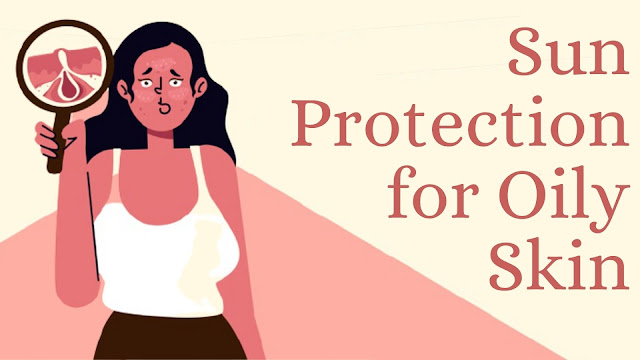The risk of getting painful sunburn is particularly high in summer. The reasons for the reddened area of skin from the sun can be varied. Perhaps the wrong sunscreen was used, you were in the sun too long, or you simply didn’t re-apply it consistently enough? The biggest reason could be you are using non-oily sunscreen gel for oily skin.
Here we explain how this will no longer happen and what you should pay attention to when sunbathing. The most important sun protection rules for oily skin.
In This Article
- Sun protection factor - what it means?
- Which Sunscreen is Best for Me?
- How long can I stay in the sun - with sun protection?
- Which parts of the body are particularly sensitive?
- Gel, oil, spray - which sunscreen is right for me?
- Best sunscreen gel for oily skin, Normal, Dry, Combination, Acne-Prone, Sensitive
Sun protection factor - what it means?
The SPF indicates how much longer you sun exposure can cause sunburn than would be possible without a cream. Wearing sunscreen prevents from sun burn and cure sun damage and prevent skin cancer.
The SPF information applies to the UVB protection it contains, but adequate UVA protection should always be available. To be sure, you should always look at the packaging of the sun cream: If the UVA abbreviation is in a circle, you can be sure that the cream also provides protection against radiation that penetrates deeper into the skin.
By the way: It is not a problem to use a higher sun protection factor than necessary. Even with high levels of sun protection, you tan - slower, but healthier.
Which Sunscreen is Best for Me?
It depends on your skin type. Your skin could be sensitive, dry, or oily acne-prone skin. A little bit lighter the skin tone, the higher the sun protection factor (SPF) must be.
Skin Care Tip: You can try using Sunscreen SPF 50 as not too high and not too low SPF. After using this you can go for high or lower as per your experience.
Especially at the beginning of the season, when the skin has not yet built up its protective barrier, just a few minutes in the midday sun can be harmful.
Let’s find here: How To Choose Sunscreen According To Your Skin Type?
How long can I stay in the sun - with sun protection?
Very important: Never lie in the sun indefinitely, no matter how high the sun protection factor is! As a guide: If you use sun protection factor ten, the time you can stay in the sun without sunburn increases tenfold.
For skin type 1 this means about 100 minutes. BUT: These times are theoretical and only apply if you apply the sun cream optimally and your skin is already used to the sun.
In practice, sun protection can be significantly lower due to factors such as sweating, swimming, or abrasion. Experts, therefore, recommend that you always take a maximum of 75 percent of the calculated time.
Which parts of the body are particularly sensitive?
Sun terraces in particular, such as the nose, ears, and shoulders, get a lot of suns. The back of the foot is forgotten most, and the neck also suffers for many. And the middle of the back is often difficult to reach alone.
If you are alone on the beach, you must either have the courage to ask someone to put some lotion on the area or cover it appropriately. The scalp is also very sensitive. In addition to special sprays and shampoos, headgear is the best solution. This also protects the hair from fading. Besides, eyes also need sun protection. Sunglasses with a special filter keep out UV radiation.
Caution: If the skin has not yet built up its sun protection factor, it is generally very sensitive everywhere, no matter what skin type you are. Then a week of vacation is not enough to get a deep tan. Just come to terms with it: tanned and still healthy, that doesn't happen in a hurry.
Gel, oil, spray - which sunscreen is right for me?
Most people with normal skin get along well with normal sun lotion or lotion. Those who to impurities on the face can use a lighter, non-comedogenic cream, fluid, or powder that does not clog pores.
Dry skin also tolerates oily creams. Important: The fewer fragrances and additives there are in the sunscreen, the more generally a product is tolerated. Those who tend to have dry skin are more likely to choose a cream.
Ultralight non sticky sunscreen gel for oily skin is recommended (and if the face is prone to acne. A spray is pleasant and practical for the body, but not suitable for people with respiratory problems. The airways can be irritated by very fine sprays.
If the spray is well-tolerated, contains few fragrances and preservatives, and is applied thick enough, it is a good alternative. Creams are a little safer because they are easier to dose and applying sunscreen.
So you know for sure whether you are sufficiently protected. Sprays are a little less accurate. It is difficult to tell whether the skin has adequate protection.
Best sunscreen for oily skin, Normal, Dry, Combination, Acne-Prone, sensitive skin
For the ultimate in sun protection, you can choose Derma Essentia oil-free Sunscreen SPF 50.
Thanks to nanotechnology, the gel is evenly and smoothly distributed across the skin. And, having increased resistance for long-term protection from the sun, it does not absorb into your skin, as do traditional sunscreens. This broad-spectrum sunscreen consists of natural extracts rich in antioxidants.

Comments
Post a Comment